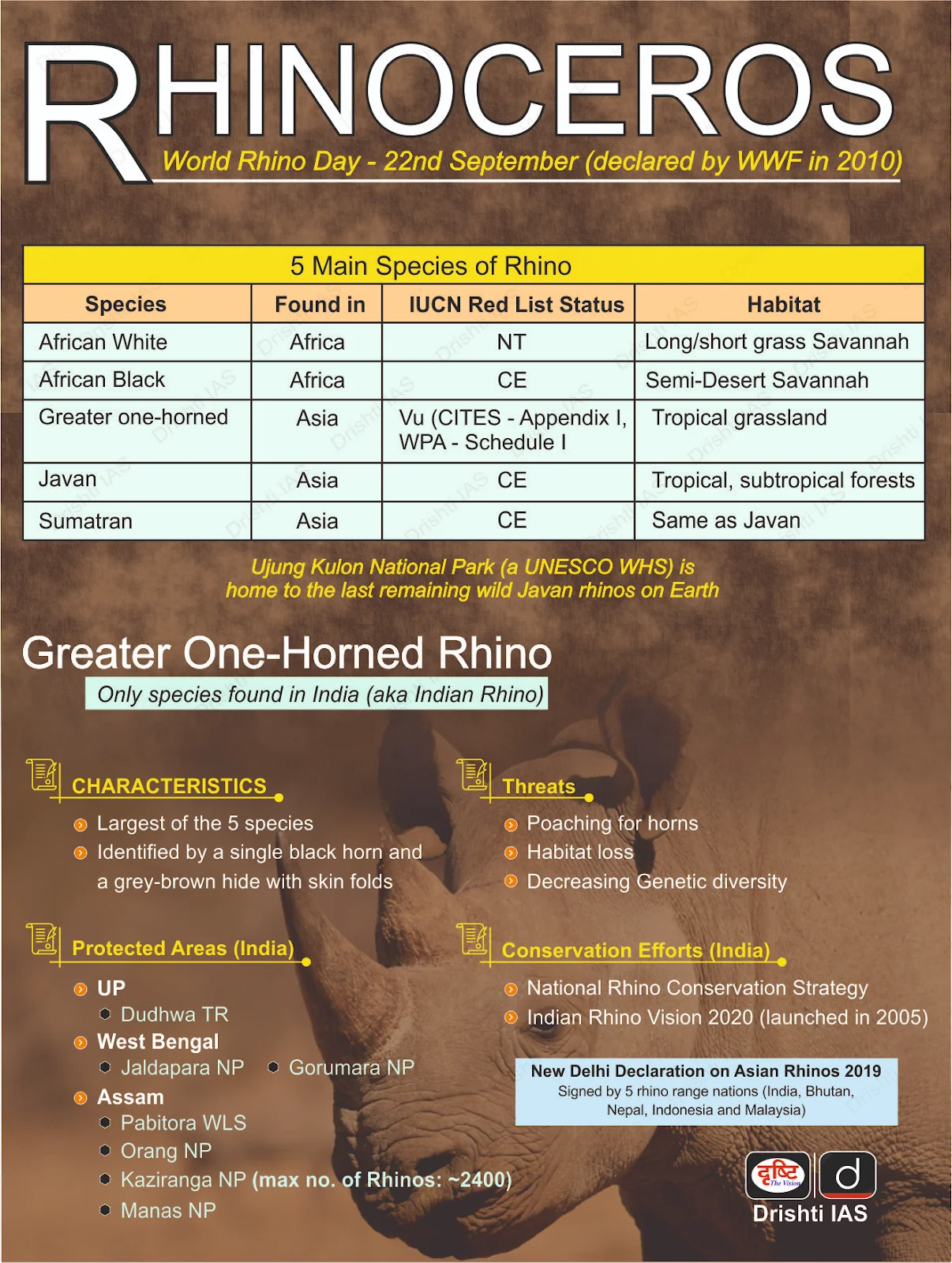16-Jul-2025
DNA Profiling Initiative
Environment & Ecology
Why in News?
The Assam Forest Department, in collaboration with the Wildlife Institute of India (WII), has launched a DNA profiling initiative for 2,573 rhino horn samples to strengthen conservation and wildlife crime investigations.
DNA Profiling of Rhino Horns
About
- As part of anti-poaching and conservation efforts, rhino horn samples retained during the public burning of seized and naturally deceased rhino horns in 2021 are being DNA profiled.
- Samples, mainly from poaching seizures and natural deaths, were verified at Kaziranga National Park, Assam.
Genetic Analysis: Samples have been sent to the Wildlife Institute of India (WII), Dehradun, for DNA analysis under the RhoDIS (Rhino DNA Index System) India programme.
RhoDIS India
- Launched in 2016, RhoDIS India is a collaborative initiative of the Ministry of Environment, Forest and Climate Change (MoEFCC), rhino-range States, the WII, and WWF-India.
- It aims to create individual DNA profiles of rhino horns for integration into a national forensic database, supporting wildlife crime investigations and the genetic conservation planning of the one-horned rhinos.
One-Horned Rhino (Rhinoceros unicornis)
- The greater one-horned rhino (or Indian rhino) is the largest rhino species, identified by a single 8–25 inch black horn and armor-like skin folds.
- It is mostly solitary and has overlapping, loosely defined home ranges. It is a grazer, feeding mainly on grasses, along with leaves, fruits, and aquatic plants.
- Assam holds 80% of the global one-horned rhinoceros population, with Kaziranga National Park (1,300 sq km) alone housing 70% of them(as of 2022).
- Due to sustained conservation efforts, India’s rhino population has grown by 170% since the 1980s, rising from around 1,500 to over 4,014 in 2024.
Preparing Through MCQ
Q. Kaziranga National Park is located in which Indian state?
(1) West Bengal
(2) Assam
(3) Uttar Pradesh
(4) Jharkhand
Answer: (2) Assam

